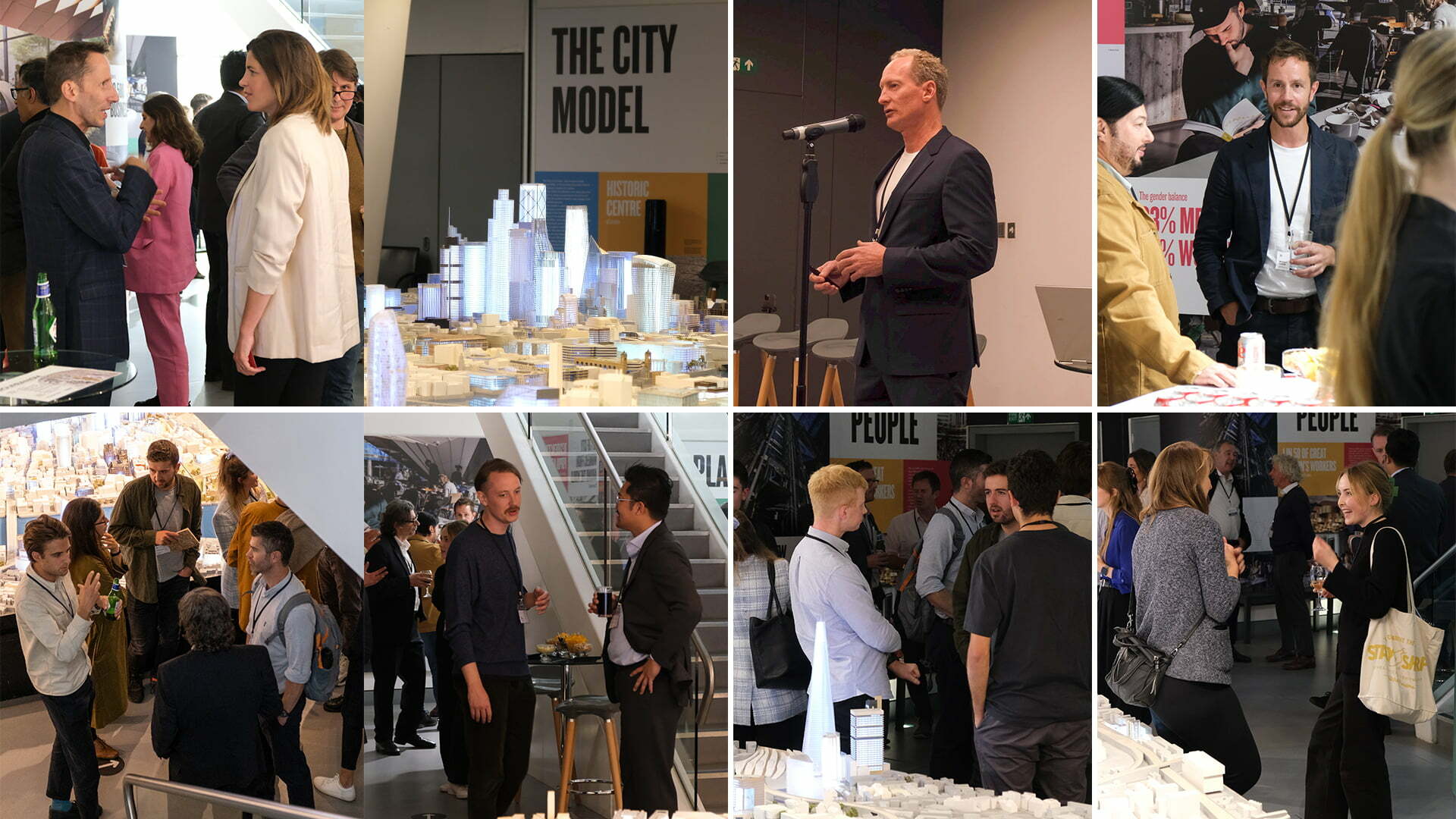The event explored the Biourbanism model and its capacity to enhance city resilience to the climate emergency. Following the presentations a panel discussion was led by Rosa Rogina, Director at the NLA with leaders from global interdisciplinary design studio, McGregor Coxall. The panel included Adrian McGregor (Chief Design Officer and author of Biourbanism), Dr. Yazid Ninsalam (Biourbanism Lab Leader), and Michael Cowdy (UK Director).
When asked about CO2 emissions and the impact of the climate emergency on cities, Biourbanism author Adrian McGregor said:
“National commitments to net zero by 2050 must be delivered by cities as they create 75% of the world’s greenhouse gas. Having recently spent time in Frankfurt, Berlin, Amsterdam, and London launching and discussing the Biourbanism model, it is clear that many global cities have begun their decarbonisation journey. Unfortunately, there are also many cities yet to start.”
“City resilience is fast becoming a priority in Europe as extreme weather and geopolitical events escalate impact to economic growth and prosperity. It is imperative that strategic urban planning and design take on a systems-based approach to tackle these challenges. The Biourbanism model is a new nature centric tool which can aid cities in their efforts to decarbonise, adapt, and increase resilience.”
“My home city of Sydney is already experiencing climatic impact from bushfire, floods, and sea level rise. In many ways Australia is a ‘canary in the coal mine’ and is moving quickly to assess risk and create plans to mitigate impact which are valuable lessons for other cities.”
The evening also saw the launch of McGregor Coxall’s city research division, the Biourbanism Lab, established to help mayors and planners increase resilience in cities through geospatial technologies, digital twins, data analysis and Artificial Intelligence.
Modelling and research created by the Lab supports McGregor Coxall’s Landscape Architecture, Urban Design and Environment disciplines globally.
Biourbanism Lab Leader and Associate Director, Dr. Yazid Ninsalam said:
“There are exciting innovations emerging from the urban design profession with respect to development of possibilities for new climate solutions. To deal with the environmental crisis effectively, designers must rethink their approach so that city resilience solutions are underpinned by science and data.”
“The Biourbanism Lab takes the guesswork out of design to help cities and communities make more informed decisions about projects by harnessing and modelling 4D data. The data revolution puts mayors, governments, planners, and citizens in a better position to understand a city’s composition, operations, and carbon emissions.”
“The Lab creates visualisations of data through dashboards linked to live digital twins. New technology allows our digital models to incorporate real time sensing finally bringing the concept of ‘smart cities’ to life.”
London, the host city, is a global economic centre, soon to become a mega city of 10 million people and faces its’ own significant challenges. These are challenges that can be addressed through Biourbanism’s approach to governance says McGregor Coxall UK Design Director, Michael Cowdy.
“Like many cities around the world, London is facing cascading social and environmental stresses through air pollution, waste, urban heat, flooding, and energy generation – impacting the city’s economic performance, health and liveability. Biourbanism’s methodology can assist in systematically transforming London’s organisational governance to help develop a living, intelligent and adaptable city that ensures triple bottom line benefits.”
Registrations of interest to purchase the Biourbanism book can be made here.

